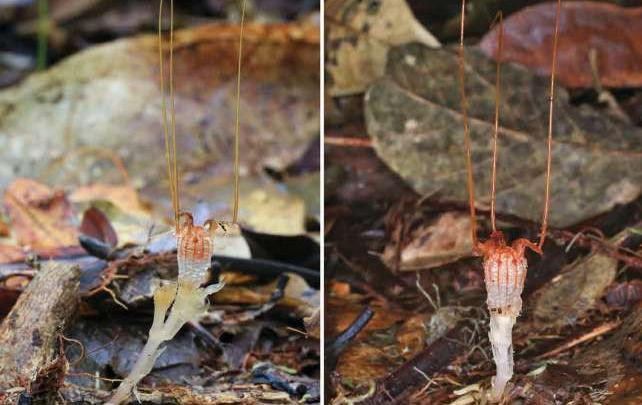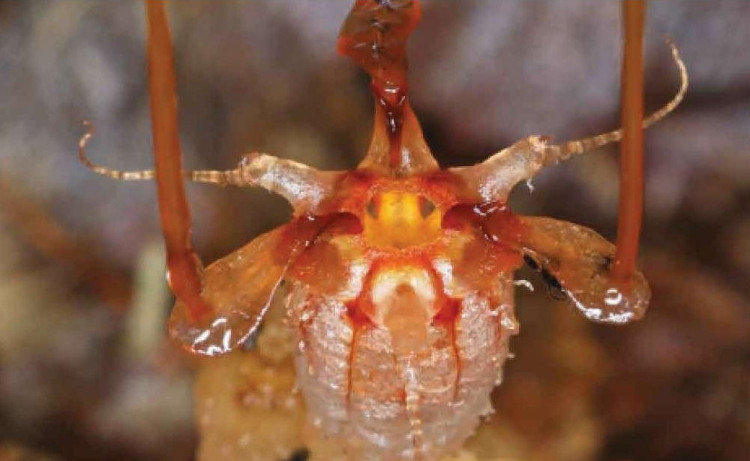Non-photosynthetic plants discovered after 150 years
Thismia neptunis plants live in the ground, get nutrients from mushrooms and only rise over a few weeks a year to bloom.
A group of scientists from the Czech Republic published a study on the discovery of this rare species Treemia neptunis in Gunung Matang, west of Sarawak state, Malaysia, 2017, Science Alert yesterday reported. T. neptunis was first discovered in 1866. At that time, the Italian botanist Odoardo Beccari happened to encounter this plant blooming in Gunung Matang. The flower part of this plant is about 9cm tall.

The research team from Czech found Thismia neptunis tree in Malaysia.(Photo: Sochor et al).

Rare plant species have many unusual characteristics.(Photo: Sochor et al).
"The hard-to-detect appearance of Thismia neptunis may somehow make us not know much about how this plant is distributed, because it is easy to ignore them. As far as we know, this is only the second time this species can found , "the team shared. They produced an additional revised description, including internal features as well as the first image of this plant.
Thismia neptunis is not only rare but also possesses some strange characteristics. They belong to a group of plants that specialize in mushrooms as a source of nutrition instead of using sunlight. They do not need chlorophyll, no leaves, do not even need photosynthesis.
- Discovered mechanisms for plants to have four different genotypes
- Plants do not photosynthesize, do not bloom
- Infrared rays help photosynthetic plants
- Implant carbon nanotubes into plant cells to increase photosynthetic efficiency
- Increase the efficiency of photosynthetic reactions with nanoparticles
- Sheep-like sea slug species are photosynthetic
- Detecting plant fossils 240 million years
- Sunlight plants parasitize on mushrooms
- Amber contains plants of 100 million years old
- Science: How must a mustache prevent cancer?
- 600 species of plants disappear, threatening human survival
- Discover scary carnivorous plants in Canada
 Why do potatoes have eyes?
Why do potatoes have eyes? 'Tragedy' the world's largest carnivorous life: Death becomes ... public toilet
'Tragedy' the world's largest carnivorous life: Death becomes ... public toilet Tomatoes were once considered 'poisonous' for 200 years
Tomatoes were once considered 'poisonous' for 200 years Detecting microscopic parasites on human face
Detecting microscopic parasites on human face